The wretched of the earth
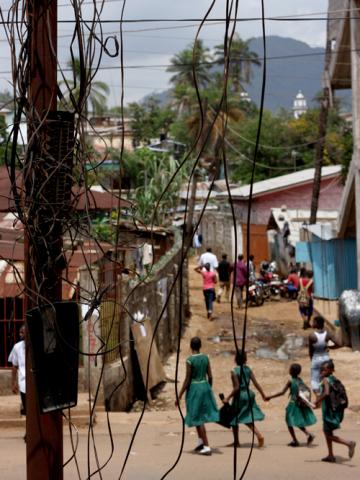
Freetown, Sierra Leone
The current crisis has seen savage cuts in the funds that the Irish state offers in support of the world’s poor. In his statement to the Dáil on Monday, the Minister for Public Expenditure Brendan Howlin announced that the Irish aid budget is to be slashed by a further €52.9 million. In this article, Anne O’Brien underlines the iniquity of a political system that can find seemingly endless funds for the banks while taking food from the mouths of some of the poorest people on the planet.
This crisis is impacting very heavily in Ireland and its effects are felt most forcefully by the most vulnerable people in our society. But the crisis has no passport, it’s not just an Irish crisis, it's also a global crisis, caused by the unsustainable structures of the world economy. At a global level, the recession also most strongly affects the weakest nations, which suffer from crises not only of finance but also in terms of food, water, fuel and climate. A useful sense of the scale of the global problem is offered by the Nations Online project. It notes that if we could shrink the earth's population to a village of 100 people, 81 people would be from less developed countries, 60 would mistrust their own government, 48 would live on less than $2 a day, 20 would live on less than $1 a day, 16 would lack access to safe drinking water, 14 would suffer from malnutrition and only one would have a college education. Half of the village's wealth would be owned by only six people, and most of them would be in the United States end of the village.
While life is disproportionately difficult for the poor in Ireland, the world's most vulnerable people are similarly disproportionately exposed to the impacts of the crisis. Less developed countries rely on four main sources of finance: aid, trade in basic commodities, foreign capital flows, and remittances, each of which has declined during the crisis. According to the UN's Millennium Campaign the amount of money made available to bail out banks ($19 trillion) in 2009 was ten times greater than all development assistance provided to poor countries in the last 50 years ($2 trillion). The World Bank estimated a financing gap for developing countries of $270-700 billion in 2009, but that didn't make a single news headline anywhere in Europe. Just like at home, those who did nothing to cause this crisis suffer the 'austerity' the most and are the most voiceless in their suffering. Ireland had committed to spending 0.7% of GNP on development aid by 2012, and while aid is hardly a panacea to development problems, overseas aid has suffered disproportionate cuts. In 2009, Trocaire, for instance, suffered a 30% cut in the government's multi-annual programme scheme funding, along with a drop of €10million in public donations over the last 3 years.
The people that bear the brunt of such cuts can least afford them. Take for instance Sierra Leone, a country the same size as Ireland, with roughly the same population. One in four children dies before the age of four.
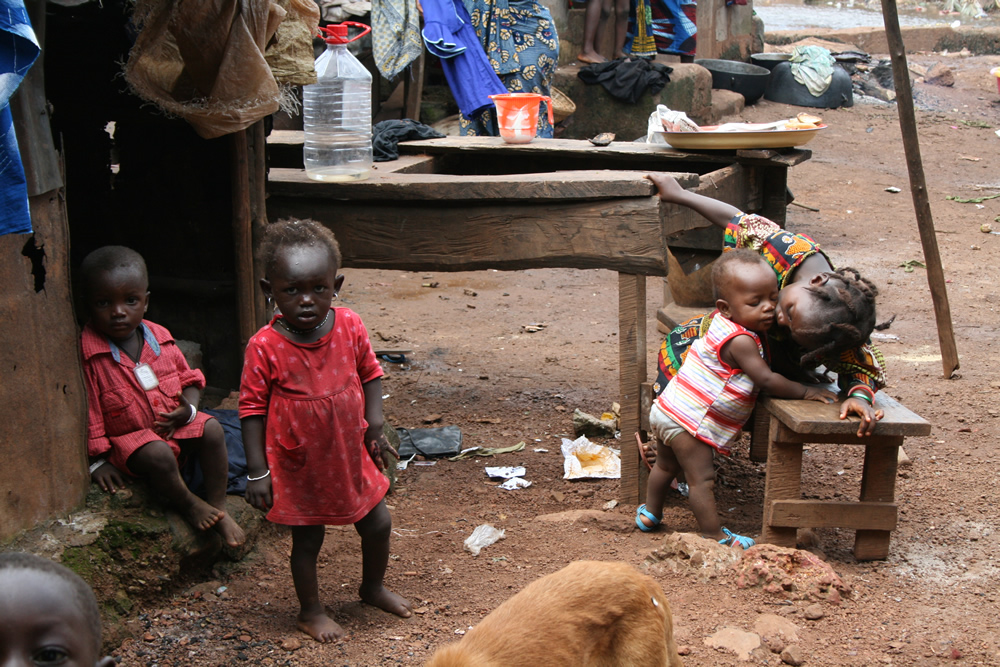
The maternal mortality rate is one in seven.
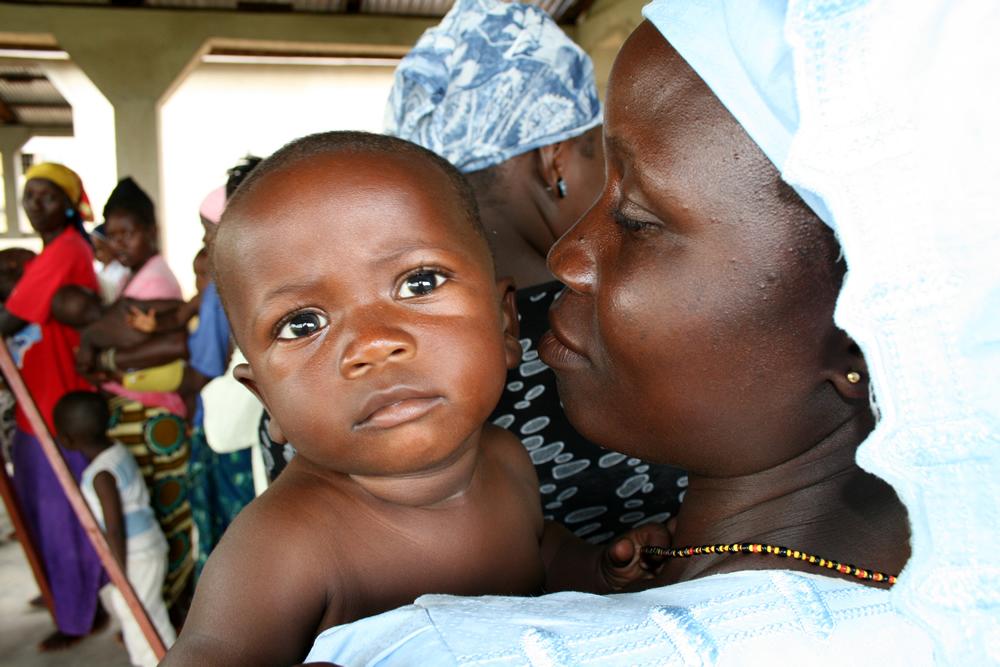
The eleven-year war, a resource war, fought for the control of the $140 million diamond trade, resulted in 50,000 deaths, and an entire generation of young people, many of them child soldiers, lost everything. The town of Kono, capital of the diamond region, is re-inhabited but has not been rebuilt.
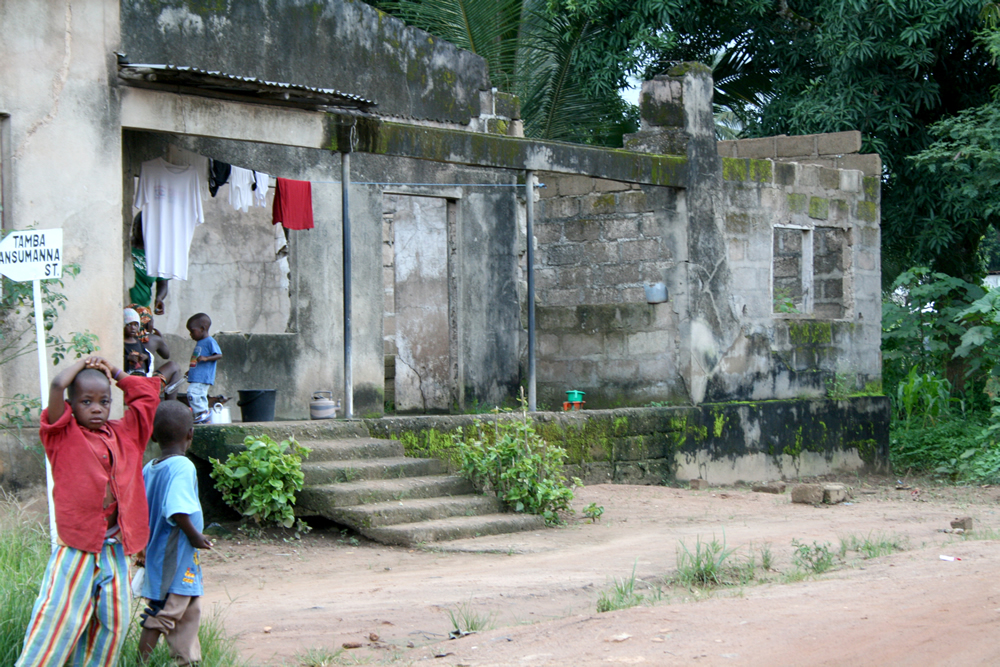
The ‘war generation’ work the diamond mines but barely make a subsistence living.
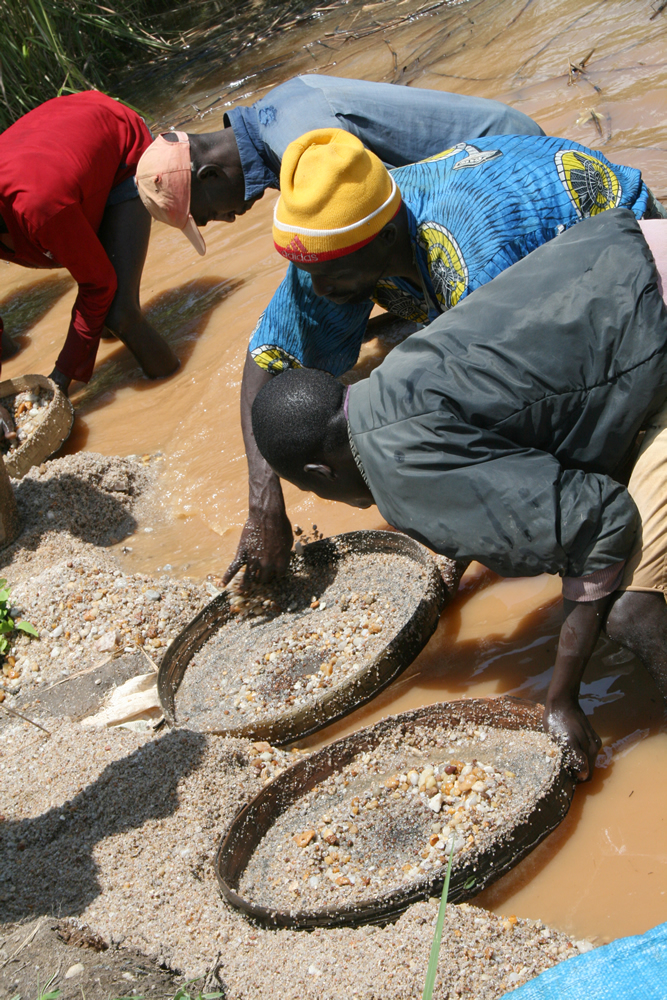
Aid from Ireland to Sierra Leone was €9 million in 2008, but aid was cut by 24% in 2009. The big question now is how long will Irish aid continue? Even members of the government have admitted that cutting the aid budget makes virtually no difference to our economic crisis. So why do it? Despite the state we’re in, why add the abandonment of the world's poorest nation to the woes and humiliations suffered by our nation? {jathumbnailoff}
Image top: Tadhg O'Sullivan; all other images: Anne O'Brien.
